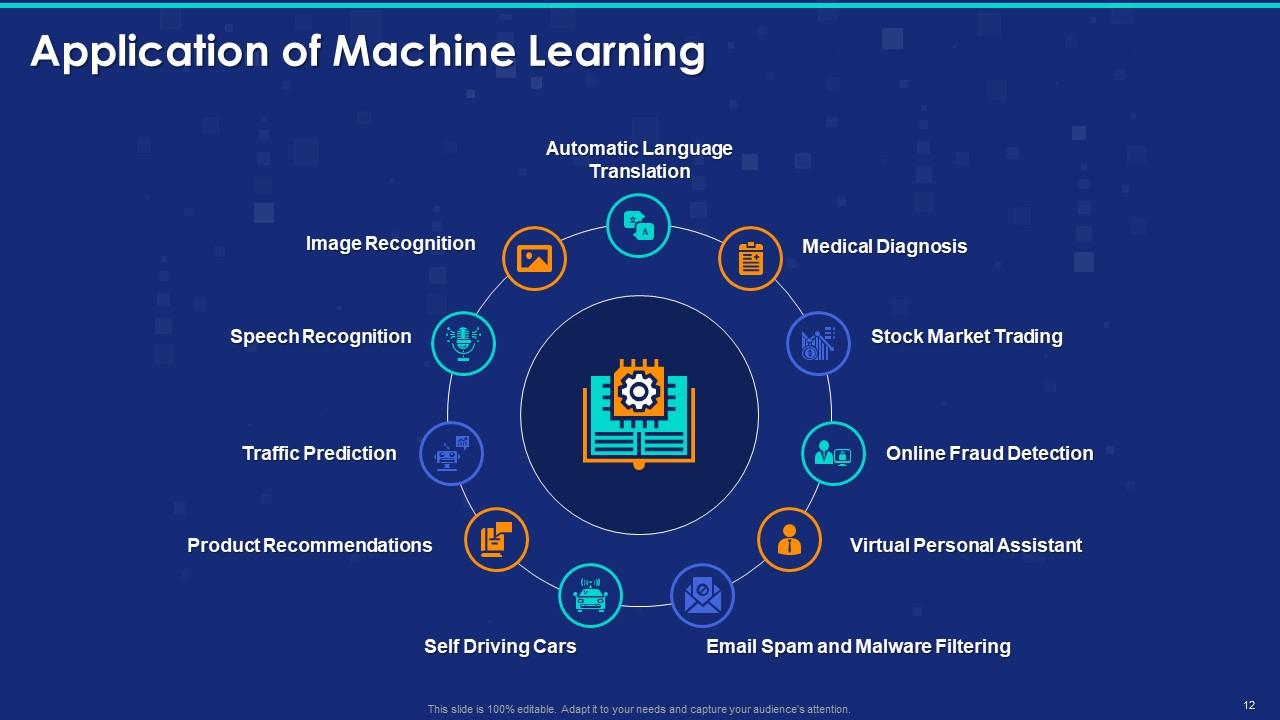Why Startups Need to Leverage Machine Learning
Machine learning has revolutionized the way businesses operate, and startups are no exception. By leveraging machine learning, startups can gain a competitive edge in the market, improve decision-making, and enhance customer experiences. In today’s fast-paced business environment, startups need to be agile and adaptable to stay ahead of the curve. Machine learning can help startups achieve this by providing valuable insights from data, automating processes, and improving operational efficiency.
One of the primary benefits of machine learning for startups is its ability to analyze large amounts of data quickly and accurately. This enables startups to make data-driven decisions, reducing the risk of human error and bias. Additionally, machine learning can help startups identify patterns and trends in customer behavior, allowing them to tailor their products and services to meet specific needs.
Another significant advantage of machine learning for startups is its ability to automate repetitive tasks. By automating tasks such as data entry, customer service, and marketing, startups can free up resources and focus on high-value activities such as product development and innovation. This can lead to significant cost savings and improved productivity.
Furthermore, machine learning can help startups improve customer experiences by providing personalized recommendations, predicting customer behavior, and detecting anomalies. This can lead to increased customer satisfaction, loyalty, and retention.
However, to fully leverage the benefits of machine learning, startups need to have a solid understanding of the technology and its applications. This requires investing in talent, infrastructure, and training. Startups also need to ensure that they have high-quality data, which is essential for training machine learning models.
By embracing machine learning, startups can stay competitive in a rapidly changing market, drive innovation, and achieve sustainable growth. As the technology continues to evolve, it’s essential for startups to stay up-to-date with the latest trends and advancements in machine learning.
How to Get Started with Machine Learning as a Startup
Implementing machine learning can seem daunting for startups, but with a clear step-by-step approach, it can be a straightforward process. The key to success lies in starting small, scaling up, and being strategic about which problems to tackle first.
Step 1: Identify Business Problems
Begin by identifying specific business problems that machine learning can help solve. This could be anything from improving customer segmentation to predicting sales trends. Make sure to prioritize problems that have a significant impact on your business and can be addressed with machine learning.
Step 2: Collect and Prepare Data
Machine learning requires high-quality data to train models. Start by collecting relevant data from various sources, such as customer interactions, sales data, or social media. Ensure that the data is clean, organized, and in a format that can be easily analyzed.
Step 3: Select Algorithms
With your data in hand, it’s time to select the right machine learning algorithms for your problem. This could include supervised learning, unsupervised learning, or reinforcement learning. Consider factors such as data size, complexity, and the type of problem you’re trying to solve.
Step 4: Deploy Models
Once you’ve selected your algorithms, it’s time to deploy your machine learning models. This could involve integrating with existing systems, building new applications, or using cloud-based services. Ensure that your models are scalable, secure, and can handle large volumes of data.
Step 5: Monitor and Evaluate
After deploying your models, it’s essential to monitor and evaluate their performance. Track key metrics such as accuracy, precision, and recall. Use this feedback to refine your models, address any issues, and improve overall performance.
By following these steps, startups can successfully implement machine learning and start seeing tangible benefits. Remember to start small, be strategic, and focus on solving real business problems. With the right approach, machine learning can be a powerful tool for driving growth and innovation.
Key Applications of Machine Learning for Startups
Machine learning has a wide range of applications for startups, and understanding these applications is crucial for leveraging the technology effectively. In this section, we’ll explore some of the most relevant applications of machine learning for startups, including predictive analytics, natural language processing, and computer vision.
Predictive Analytics
Predictive analytics is a powerful application of machine learning that enables startups to forecast future events or trends. By analyzing historical data, machine learning algorithms can identify patterns and make predictions about future outcomes. This can be applied to a wide range of areas, such as sales forecasting, customer churn prediction, and demand forecasting.
For example, a startup in the e-commerce space can use predictive analytics to forecast sales trends and optimize inventory levels. By analyzing historical sales data, the startup can identify patterns and make predictions about future sales trends, enabling them to make informed decisions about inventory management.
Natural Language Processing
Natural language processing (NLP) is another key application of machine learning for startups. NLP enables computers to understand and interpret human language, which can be applied to a wide range of areas, such as text analysis, sentiment analysis, and language translation.
For example, a startup in the customer service space can use NLP to analyze customer feedback and sentiment. By analyzing customer reviews and feedback, the startup can identify patterns and trends, enabling them to make informed decisions about product development and customer service.
Computer Vision
Computer vision is a rapidly growing application of machine learning that enables computers to interpret and understand visual data. This can be applied to a wide range of areas, such as image recognition, object detection, and facial recognition.
For example, a startup in the healthcare space can use computer vision to analyze medical images and diagnose diseases. By analyzing medical images, the startup can identify patterns and trends, enabling them to make informed decisions about patient care and treatment.
These are just a few examples of the many applications of machine learning for startups. By understanding these applications, startups can leverage machine learning to drive innovation, improve efficiency, and gain a competitive edge in the market.
Overcoming Common Challenges in Machine Learning Adoption
While machine learning can be a powerful tool for startups, there are several common challenges that can hinder its adoption. In this section, we’ll discuss some of the most common challenges startups face when implementing machine learning, and provide practical advice on how to overcome them.
Data Quality Issues
One of the most significant challenges startups face when implementing machine learning is data quality issues. Machine learning algorithms require high-quality data to produce accurate results, but many startups struggle to collect and prepare data that meets these standards.
To overcome this challenge, startups should focus on collecting and preparing high-quality data from the outset. This can involve investing in data collection tools, implementing data validation processes, and ensuring that data is properly labeled and formatted.
Lack of Expertise
Another common challenge startups face when implementing machine learning is a lack of expertise. Machine learning requires specialized skills and knowledge, and many startups struggle to find and retain top talent in the field.
To overcome this challenge, startups should consider partnering with machine learning experts, investing in employee training and development programs, and leveraging online resources and communities to stay up-to-date with the latest developments in the field.
Integration with Existing Systems
Finally, many startups struggle to integrate machine learning with their existing systems and infrastructure. This can be a significant challenge, as machine learning requires specialized hardware and software to operate effectively.
To overcome this challenge, startups should focus on developing a clear integration strategy from the outset. This can involve investing in cloud-based machine learning platforms, leveraging APIs and microservices to integrate with existing systems, and ensuring that data is properly formatted and labeled for use in machine learning models.
By understanding and addressing these common challenges, startups can overcome the obstacles that stand in the way of successful machine learning adoption. With the right approach, machine learning can be a powerful tool for driving innovation, improving efficiency, and gaining a competitive edge in the market.
Real-World Examples of Successful Machine Learning Implementations
Machine learning has been successfully implemented in various industries, and startups are no exception. In this section, we’ll showcase some real-world examples of successful machine learning implementations by startups, highlighting the benefits and results achieved.
Example 1: Predictive Maintenance for Manufacturing
A startup in the manufacturing industry used machine learning to predict equipment failures, reducing downtime and increasing overall efficiency. By analyzing sensor data from equipment, the startup was able to identify patterns and anomalies, enabling them to schedule maintenance and prevent costly repairs.
Example 2: Personalized Recommendations for E-commerce
An e-commerce startup used machine learning to provide personalized product recommendations to customers, increasing sales and improving customer satisfaction. By analyzing customer behavior and purchase history, the startup was able to identify patterns and preferences, enabling them to offer targeted recommendations.
Example 3: Image Recognition for Healthcare
A healthcare startup used machine learning to develop an image recognition system for diagnosing diseases, improving accuracy and reducing diagnosis time. By analyzing medical images, the startup was able to identify patterns and anomalies, enabling them to provide more accurate diagnoses.
Example 4: Natural Language Processing for Customer Service
A customer service startup used machine learning to develop a natural language processing system for analyzing customer feedback, improving response times and customer satisfaction. By analyzing customer feedback, the startup was able to identify patterns and trends, enabling them to provide more effective support.
These examples demonstrate the potential of machine learning for startups, highlighting the benefits and results that can be achieved through successful implementation. By leveraging machine learning, startups can drive innovation, improve efficiency, and gain a competitive edge in the market.
Building a Strong Machine Learning Team
Building a strong machine learning team is crucial for startups that want to leverage the power of machine learning. A well-structured team can help startups develop and implement effective machine learning solutions, drive innovation, and stay competitive in the market.
Key Roles and Skills
A machine learning team typically consists of several key roles, including data scientists, machine learning engineers, data engineers, and project managers. Each role requires a unique set of skills and expertise, including programming languages, data analysis, and machine learning algorithms.
Data Scientists
Data scientists are responsible for developing and training machine learning models, as well as analyzing and interpreting data. They should have a strong background in statistics, mathematics, and computer science, as well as expertise in programming languages such as Python, R, or Julia.
Machine Learning Engineers
Machine learning engineers are responsible for deploying and maintaining machine learning models in production environments. They should have a strong background in software engineering, as well as expertise in machine learning frameworks such as TensorFlow, PyTorch, or Keras.
Data Engineers
Data engineers are responsible for designing and implementing data pipelines, as well as ensuring data quality and integrity. They should have a strong background in data engineering, as well as expertise in programming languages such as Python, Java, or Scala.
Project Managers
Project managers are responsible for overseeing machine learning projects, including defining project scope, timelines, and budgets. They should have a strong background in project management, as well as expertise in machine learning and data science.
Attracting and Retaining Top Talent
Attracting and retaining top talent in machine learning can be challenging, but there are several strategies that startups can use to build a strong team. These include offering competitive salaries and benefits, providing opportunities for professional development and growth, and fostering a collaborative and inclusive work environment.
By building a strong machine learning team, startups can develop and implement effective machine learning solutions, drive innovation, and stay competitive in the market.
Staying Up-to-Date with the Latest Machine Learning Trends
Machine learning is a rapidly evolving field, and startups need to stay current with the latest trends and advancements to remain competitive. In this section, we’ll discuss the importance of staying up-to-date with machine learning trends and offer tips on how startups can stay informed and adapt to new developments in the field.
Why Stay Current?
Staying current with machine learning trends is crucial for startups because it enables them to leverage the latest technologies and techniques to drive innovation and growth. By staying up-to-date, startups can identify new opportunities, improve their products and services, and stay ahead of the competition.
How to Stay Current
There are several ways startups can stay current with machine learning trends, including:
Attending Industry Conferences and Events
Industry conferences and events are a great way for startups to learn about the latest machine learning trends and network with other professionals in the field.
Reading Industry Blogs and Publications
Industry blogs and publications, such as KDnuggets and Machine Learning Mastery, provide valuable insights and information on the latest machine learning trends and techniques.
Participating in Online Communities
Online communities, such as Kaggle and Reddit’s Machine Learning community, provide a platform for startups to connect with other professionals, ask questions, and learn from their experiences.
Experimenting with New Technologies
Experimenting with new technologies and techniques is a great way for startups to stay current with machine learning trends and identify new opportunities for innovation and growth.
By staying current with machine learning trends, startups can drive innovation, improve their products and services, and stay ahead of the competition.
Measuring the Success of Machine Learning Initiatives
Measuring the success of machine learning initiatives is crucial for startups to evaluate the effectiveness of their machine learning projects and make informed decisions about future investments. In this section, we’ll discuss the importance of measuring the success of machine learning initiatives and provide guidance on how to evaluate the effectiveness of machine learning projects.
Key Performance Indicators (KPIs)
Key performance indicators (KPIs) are metrics that measure the success of machine learning initiatives. Common KPIs for machine learning projects include accuracy, precision, recall, F1 score, and mean squared error. Startups should select KPIs that align with their business goals and objectives.
Metrics for Evaluating Machine Learning Models
Metrics for evaluating machine learning models include confusion matrices, ROC curves, and precision-recall curves. These metrics provide insights into the performance of machine learning models and help startups identify areas for improvement.
Evaluating the Effectiveness of Machine Learning Projects
Evaluating the effectiveness of machine learning projects involves assessing the impact of machine learning on business outcomes. Startups should consider metrics such as return on investment (ROI), customer satisfaction, and revenue growth when evaluating the effectiveness of machine learning projects.
Best Practices for Measuring Success
Best practices for measuring the success of machine learning initiatives include setting clear goals and objectives, selecting relevant KPIs and metrics, and regularly monitoring and evaluating performance. Startups should also consider using data visualization tools to communicate insights and results to stakeholders.
By measuring the success of machine learning initiatives, startups can evaluate the effectiveness of their machine learning projects, identify areas for improvement, and make informed decisions about future investments.




